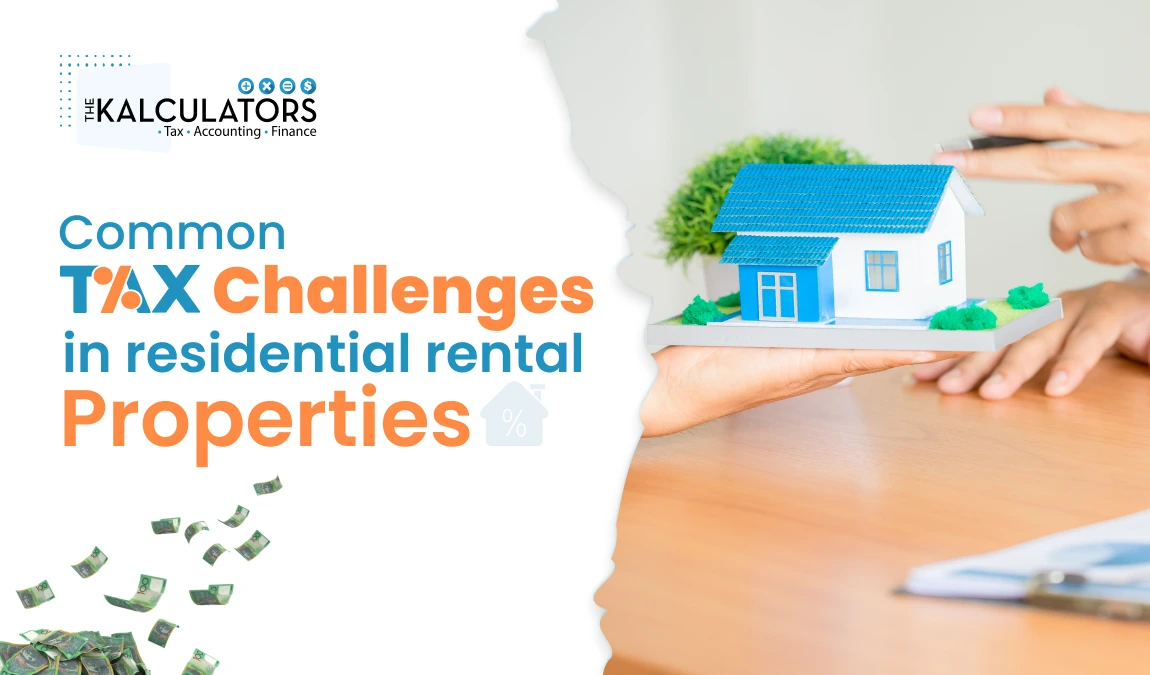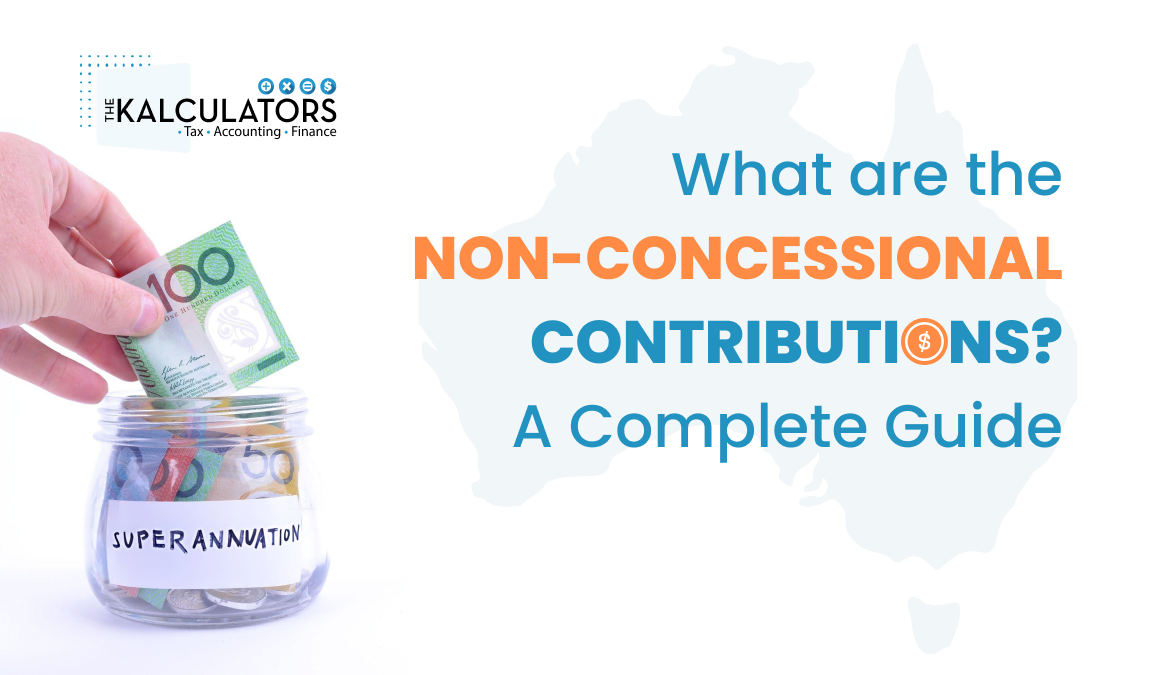
Managing property taxes can be quite complex, as anyone involved in the field can attest, especially considering the variations in tax regulations between states and local governments within a single state. Accounting and finance teams find it challenging to use scalable and consistent systems, especially during tax season when demand is at its highest due to these inconsistencies and numerous other factors. Three distinct organisations will respond differently when you ask how they handle their property taxes. Three common complaints among survey participants were found by the research. In this piece, we will emphasise the results, particularly for enterprise-level businesses.

Challenges of Residential Rental Properties
1. Changes on residential rental properties in 2018
Travel expenses (e.g., motor vehicle expenses, taxi or car hire costs, airfares or public transport costs, meals or accommodation related to the aforementioned travel) incurred to inspect residential rental properties will no longer be deductible for individuals, discretionary trusts, and SMSFs as of July 1, 2017. The rental property's cost or reduced cost base will not incorporate these denied trip deductions. Taxpayers may still deduct travel costs, but they must examine residential and commercial properties that are utilised for business purposes (such as retirement communities). fees incurred by real estate agents for property management (which may include paying for their travel fees to view the residential rental property) are still deductible. Additionally, starting of July 1, 2017, the depreciation on appliances (such as refrigerators and washing machines) in residential rental units would be severely restricted based on the following:
- The machinery and plant were purchased on or before May 9, 2017;
- The machinery and plant have been utilised before;
- The machinery and plant have previously been utilised at the taxpayer's home or
- Whether newly constructed residential properties have the plant and equipment installed.
2. The ever-changing legislative rules
Many changes to the law that affect residential rental properties have been one of the biggest problems homeowners have had lately. Real estate owners have had to get used to many new rules and obligations, such as changes to depreciation rules and negative gearing rules. Here are some of the notable changes in recent years:
Foreign resident capital gains withholding regime
The Foreign Resident Capital Gains Withholding regime (FRCGW) will change because the government declared it sometime ago. For real estate sales starting on January 1, 2025, the FRCGW tax rate will go up from 12.5% to 15%, and the withholding threshold will go down from $750,000 to $0. The FRCGW tax has been in place since July 1, 2016. It affects people outside of Australia and sells certain taxable items, like taxable real estate worth $750,000 or more and other assets like indirect Australian real property interests in Australian entities. The rules are meant to make sure that the Australian Taxation Office (ATO) can get the right amount of tax from foreign residents living in Australia. In a sale with more than one seller, the FRCGW regime only needs one of them to be a foreign resident.
At this time, buyers must keep 12.5% of the property's purchase price from the seller and give it to the ATO instead. People who buy real estate must pay the FRCGW tax to the ATO if they know or have a good reason to believe that the seller lives in another country at the time of the purchase. The buyer doesn't have to hold back the 12.5%, though, if the seller signs a written statement saying they live in Australia and the buyer doesn't have the real information.
Claiming travel expenses and depreciation on certain RRP assets
You can get a tax break for some of your costs while your home is rented out or available for rent. You can't, however, claim private or capital expenses. You might be able to claim a decline in value or capital works deductions for some capital expenditures, or you could include some capital costs in the property's cost base for CGT purposes.
The ATO found that some taxpayers wrongly claimed private travel or travel costs incurred while inspecting or maintaining an RRP (or collecting rent). The ATO also found that costs were not being properly split. To stop this, section 26-31(1) of the Income Tax Assessment Act 1997 Act (ITAA 1997) says that travel costs for making or getting assessable income from a home can't be deducted. These costs are also not included in the property's CGT cost base.
This rule has been in place since July 1, 2017, and it covers the costs of renting a car, taking a taxi or taxi service, flying, taking the bus, and any meals or lodging related to the trip. In the ATO's Rental property schedule, there is still a label for claiming travel expenses for non-residential property or residential property owned by entities that are not included.
Changes were also made on July 1, 2017, to stop property investors from "refreshing" the value of used, depreciating assets and claiming more than the assets' actual value. This can happen by allocating a portion of the purchase price to depreciating assets (like plant and equipment) bought with the property and claiming capital allowance deductions. In general, taxpayers can't claim depreciation for income years starting on or after July 1, 2017, for used assets that started to lose value in an RRP bought on or after May 9, 2017, at 7:30 p.m. There are some exceptions, such as when the property is used for business purposes, when the taxpayer is an excluded entity, or when the property was rented out in whole or in part during the 2016–17 income year.
The following are expenses that you can't deduct:
- Costs that you didn't have to pay, like water or electricity bills that your tenants paid for when your property, including your vacation home, wasn't really for rent
- Costs that don't have to do with renting out a property, like the costs you pay to use a vacation home that you rent out for part of the year, the costs of maintaining a property that isn't making money.
- Expenses for holding vacant land, buying and selling properties, and the cost of travelling to look at properties before you buy them or, in some cases, while you already own them.
- Expenses for moving things from one rental property to another before renting them out.
- Expenses for rental seminars that help you find a rental property to invest in.
- Changes from July 1 2018 — GST at settlement
In the past, it was up to the property supplier to pay the withholding amount. However, changes have been made because GST amounts were not being paid to the ATO in this sector (known as "phoenixing"). As of July 1, 2018, people who buy a new home or land that could be used for housing will have to pay the ATO a GST Withholding amount when the deal is settled.
According to these changes, a "new residential property" is a home that has never been sold as a home and has never been leased for a long time. Some examples are house and land packages, homes that aren't built yet, display homes, and new apartments. It is also considered a "new residential property", any residential building built to replace an existing property.
The rules say that "potential residential land" is land that could be used for residential purposes and doesn't already have a home OR land that a property subdivision plan could determine. There is no need to withhold GST if "substantial renovations" are used to make a residential property into a new one or if it stops being considered "new" after being rented out continuously for more than five years after it was built. As part of the new rules, the property seller will tell buyers in writing before settlement if they need to pay GST.
Vacant land changes
The changes are meant to hurt "Mum and Dad Property Developers." Before, you could get many tax breaks if you owned a block of empty land. We're sorry to say that is no longer the case. Those deductions were for "vacant land holding costs" related to land on which you planned to build a rental property. You could also deduct the costs of financing that land. There were costs like council rates, land tax, insurance, loan interest, repairs, and other costs related to holding the land.The new rules will apply to anyone who owned the empty land before July 1, 2019. You can't claim tax breaks for the above costs any longer when you file your rental property tax return. The new laws also cover land that might have a building on it, even if that building isn't "substantial."
"Vacant Land" is land that isn't used or that can be used but doesn't have a permanent structure. It is not as clear as "Substantial Building." Of course, a house or business will do, but so will a shearing shed or silo. But not just any shed or garage. There may be some interesting attempts to "trick up" some buildings so that they meet the substantial building requirements.
Mostly, this depends on what kind of taxpayer you are. The new rules are aimed at small-time property developers, like families who want to make extra money by building a rental home on a piece of land that isn't being used. It will also cover pieces of land that trusts or self-managed super funds own. The new laws shouldn't affect you if a business owns the land. The same applies to titles owned by public trusts, managed investment trusts, and super funds that are not self-managed. Otherwise, you are not responsible if you use your empty land for business purposes. Talking to professionals is the best way to determine how the Tax Office will see your project.
3. Reduced amount of deductions made during inspections
According to the revised Section 26-31 of the Income Tax Assessment Act, deductions for travel expenses related to a rental property are no longer allowed, regardless of whether it is for property inspection or repair arrangements. According to the previous regulation, apportionment was necessary to determine the accurate amount to subtract when travel served two functions: combining a vacation with property inspection. Instead of continuing to enforce the previous regulation, the government completely prohibited these deductions, citing "widespread abuse" and excessive claims.
4. Reduced amount of depreciation deductions
Section 40-27 of the new legislation prohibits owners from claiming depreciation deductions for second-hand goods used in their rental properties. This situation can occur when property owners transfer assets, such as stoves, dishwashers, or air conditioners, from their residences to rental properties. Alternatively, it can happen when owners purchase rental properties with second-hand assets and then overstate their value significantly. This overstatement may occur repeatedly as properties change hands between different owners.
Instead of explaining the formula more, the government prohibited any assertions regarding rental income for future used assets. Instead, it addressed them through modifications to the capital gains tax that must be paid upon selling the property. Once again, it mentioned "significant abuse" and stated that the reform would enhance the tax system's integrity.
5. Ensuring property tax compliance is time-consuming
Companies often allocate an excessive amount of time to property tax activities. Based on the study results, businesses dedicate an average of 90.4 hours per week (approximately four days) to managing real property taxes. Managing personal property tax is particularly tasking, with enterprises spending an average of 132 hours per week on various compliance-related chores. It is not surprising that corporations hire many employees to handle works linked to compliance, such as data entry, filing returns, tax research, appeals, and other related duties. A study conducted by Potentiate revealed that 57% of the investigated organisations have a workforce of 6-15 experts dedicated to property tax administration activities, while 17% of the respondents employ 16-20 staff members for the same purpose.
Although these figures may appear surprisingly large, they are logical, given the immense number of tax invoices that corporations handle. Based on the poll, 56% of businesses handle, monitor, and settle a range of 500 to 10,000 tax invoices each year. Complicating matters further is that each jurisdiction possesses distinct tax rates, regulations, and deadlines for filing. It is not unexpected that 47% of participants in the poll expressed that staying updated on jurisdictional regulations and modifications poses considerable difficulty.
6. Noncompliance errors incur significant expenses
More implementation of automation might result in expensive mistakes made by humans. Implementing precise rates, rules, and due dates into systems is tricky when relying on old technologies and methods, such as spreadsheets and internally developed systems. Just 37% of the businesses questioned utilise property tax software, while the rest rely on a homemade solution developed in Excel or another manual tracking approach.
As previously stated, tax regulations vary not just among states but also at the local government level. These laws can undergo frequent changes. Mistakes in adherence procedures can frequently lead to overlooked deadlines and the consequent fines enforced by tax authorities. Numerous organisations incur property tax penalties or make excessive payments annually due to the daunting task of managing due dates and tax rates or needing more visibility amidst extensive documentation.
7. Old technology is unable to match the progress
Excel spreadsheets remain extensively utilised for compliance management. Accounting and finance professionals often find themselves in a perpetual cycle of browsing the internet or contacting assessor's offices to obtain the most up-to-date return forms and other information. They then manually update their records across multiple separate systems.
A huge challenge for organisations that need to automate their workflow is effectively handling the incorporation of fixed assets into their property tax system. The costs and dates of acquiring fixed assets, which are required for filing purposes, are usually stored in an ERP or comparable system. Validating and transferring this data to a custom property tax solution or an Excel spreadsheet is time-consuming. Additional drawbacks of old systems are more intricate. Survey respondents indicated that 73% of firms considered the ability to attach property tax documents to tax bill payments and audit trails as the most crucial feature of any property tax system. Check out Things to Consider When Picking an Online Accounting Software for more information.
Conclusion
The tax regulations for the ownership of rental real estate are notably complicated. If you own or are considering buying rental property and have unresolved inquiries, such as those related to depreciation regulations or the nonpassive nature of rental income and losses, we suggest arranging a meeting with a member of The Kalculators team. This will allow us to understand your situation better and provide recommendations on optimising the advantages of your rental activities while reducing your overall income tax obligations. Please reach out to us immediately to arrange a consultation.
We are ready to develop a strategic plan. Allow us to assist you in maximising any remaining advantages provided by the most recent tax reforms. We are pleased to address any inquiries you may have regarding reducing your tax liabilities and optimising potential advantages through proactive measures in the current year, 2024. Contact us now for detailed information on customised tax planning strategies to align with your financial objectives.
Frequently asked questions
What tax deductions can I claim for my residential rental property?
Common deductions include mortgage interest, property taxes, insurance, repairs and maintenance, utilities, depreciation, and property management fees. However, consulting a tax professional is crucial to ensure you're claiming all eligible deductions.
How does depreciation affect my taxes for a rental property?
Depreciation allows you to deduct the cost of the property over its useful life. This deduction can significantly reduce your taxable rental income. However, claiming depreciation may have implications when you sell the property, as it reduces your cost basis.
Are rental losses tax-deductible?
Rental losses can usually be deducted against other sources of income if you meet certain criteria. However, there are limitations based on your income level and whether you actively participate in managing the property. Consult a tax advisor for guidance.
Do I need to report rental income if I only temporarily rent my property?
All rental income, regardless of duration, must be reported on your tax return. This includes short-term rentals like vacation rentals or renting out a property for part of the year.
How do I handle taxes on rental income if I rent out part of my primary residence?
If you rent out part of your primary residence, you must allocate expenses between the rental and personal use portions. You can generally deduct expenses related to the rental portion, but there are specific rules and limitations to consider. It's advisable to seek guidance from a tax advisor.
Are there any tax credits available for rental property owners?
While there aren't specific tax credits for rental property owners, you may be eligible for certain energy efficiency or low-income housing tax credits if you make qualifying improvements to your rental property or participate in affordable housing programs.
What records should I keep to help with my rental property taxes?
Maintaining detailed records of rental income and expenses is crucial, including receipts, invoices, lease agreements, and records of any improvements made to the property. These records will help support your tax deductions and ensure compliance with IRS regulations.







